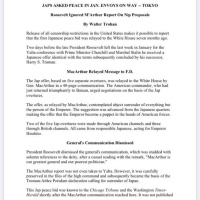A platitude is a trite, meaningless, or prosaic statement, often used as a thought-terminating cliché, aimed at quelling social, emotional, or cognitive unease.[1] The statement may be true, but its meaning has been lost due to its excessive use.[2]
Platitudes have been criticized as giving a false impression of wisdom, making it easy to accept falsehoods:
全体主義的な環境の言葉は、思考を終了させる決まり文句によって特徴づけられる。人間の問題の最も遠く、複雑な圧縮は、簡単に暗記し、簡単に表現する、非常に還元的、決定的な響きのフレーズです。これらは、あらゆるイデオロギー的分析の始まりと終わりになる。
The language of the totalist environment is characterized by the thought-terminating cliché. The most far-reaching and complex of human problems are compressed into brief, highly reductive, definitive-sounding phrases, easily memorized, and easily expressed. They become the start and finish of any ideological analysis.
Thought Reform and the Psychology of Totalism, Chapter 22, Ideological Totalism (1961)
"Stop thinking so much." - 手元のトピック、アイデア、議論から、思考の使いすぎとされること自体に注意を向け直すこと[11]。
"大丈夫だ" - 問題はすでに解決していると主張することによって、根拠なく、あらゆる可能な議論を無効化する[12]。
"Here we go again." - ある意見の相違が冗長で循環的な性質を持っているため、決して解決されないとほのめかす[13]。
"だから何?私の行動にはどんな効果があるのですか?" - 一人の人間が重要な影響を与えるにはあまりにも些細であるという理由で、より大きな原因への個人の関与を棄却するために使用される[4]。
"フェイクニュース" - あるテーマについて、個人独自の解釈を押し通すために、代替の、あるいは誤解を招くような情報を提供しながら、議論の出所を否定するために使われることが多い。2016年にアメリカの政治家によって広められた用法[14]。
- "Lies of the devil." – Used as a response to any fact that threatens the integrity of an individual or group.[10]
- "Stop thinking so much." – Redirects attention from the topic, idea, or argument at hand to the alleged overuse of thought itself.[11]
- "It's all good." – Nullifies, without evidence, any possible debate by asserting the issue is already settled.[12]
- "Here we go again." – Implies that the redundant, cyclical nature of a given disagreement means it will never be resolved.[13]
- "So what? What effect does my action have?" – Used to dismiss an individual's involvement in a larger cause on the grounds that one person is too insignificant to ever have a meaningful impact.[4]
- "Fake news." – Used to negate the sources of an argument, often while providing alternate or misleading information to push an individual's own interpretation of a subject. Usage popularized by politicians in the US in 2016.[14] [14] Wendling, Mike (22 January 2018). "The (almost) complete history of 'fake news'". BBC.com. Retrieved 23 June 2022.

























